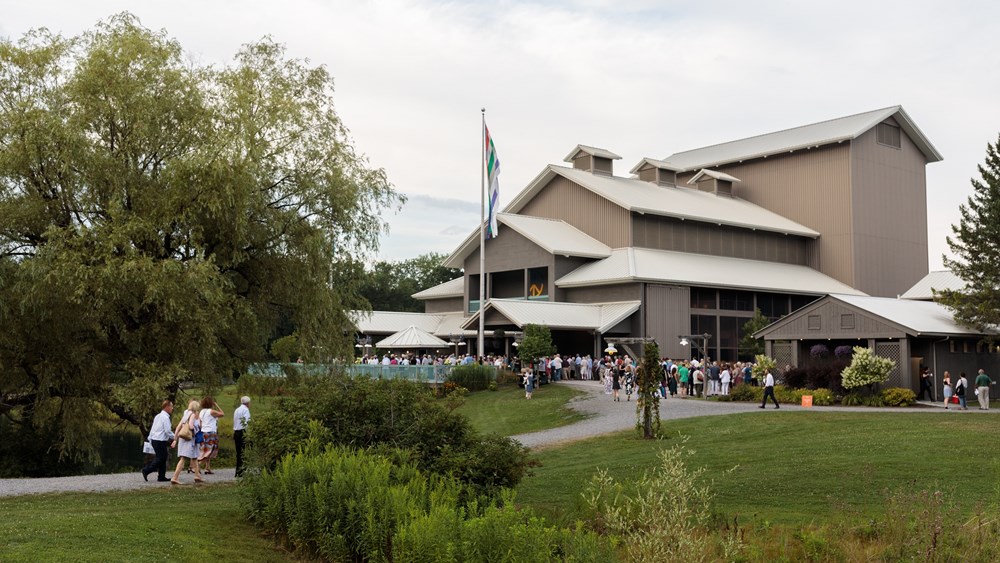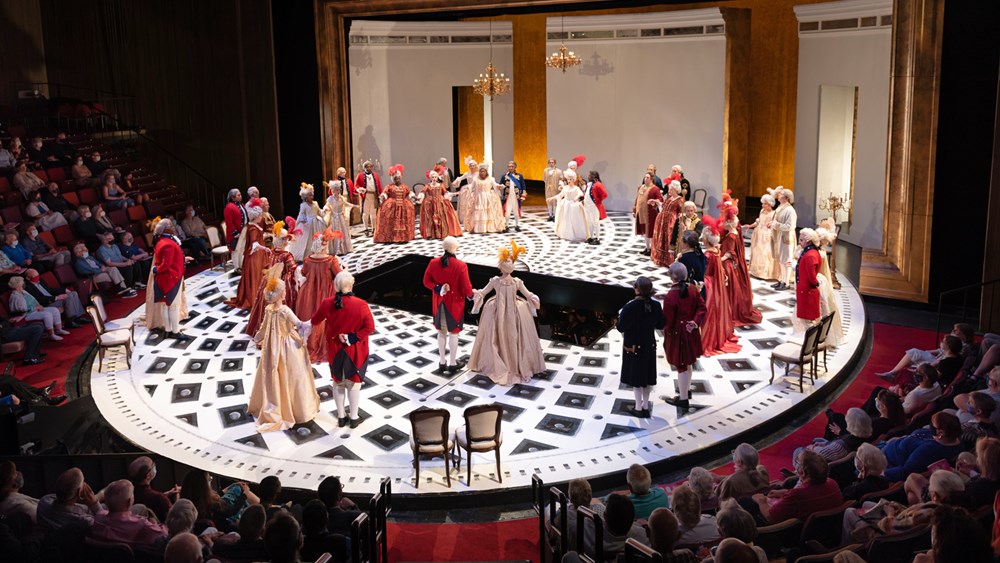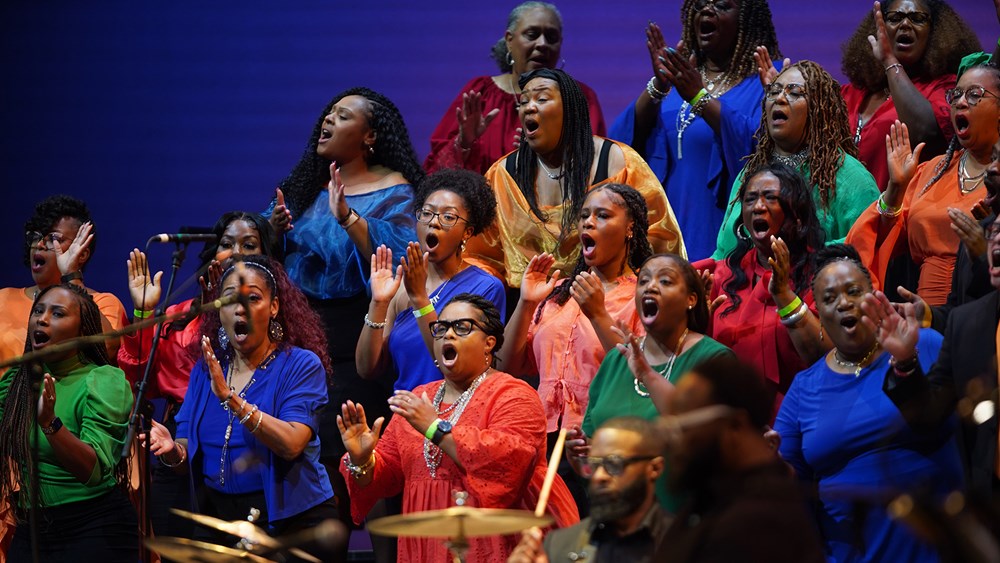The challenges — and advantages — of the summer festival business model
A typical American opera company mounts about two to four productions a year from fall to spring, large-scale affairs with hundreds of hours of rehearsing and designing and costuming. Now, imagine condensing all of that work and all of those performances into only a few weeks. Every year, America’s summer opera festivals do just that, packing multiple productions, educational offerings, fundraisers, and pretty much everything a year-round company does into only a month or two. They are whirlwind, thrilling affairs.
“Summer festivals are a celebratory coming together where you can form a personal connection, not only to the artists, but also to the place,” says Robert Ainsley, artistic and general director at the Glimmerglass Festival near Cooperstown, New York.
Summer companies share some similarities with their year-round counterparts. In addition to their tentpole offerings, many also offer year-round programming to maintain donor engagement. Some offer a variety of free community concerts and student matinees outdoors or in schools. Some throw galas, glamorous black-tie affairs with brief performances, during the year. Some host fashion shows. There are pre-concert lectures. Post-concert discussions. Artist residencies. Early-career training programs for staff and production crews. The list continues.
But there are also some key differences, including a reliance on tourism, more varied repertoire, seasonal rather than full-time staff, and more. Such differences enrich the field and offer new ways of considering how companies can best manage their resources to serve their individual communities.

DESTINATION CITIES
First, year-round companies provide an economic boost to their cities through their performances, but the concentrated nature of the summer festival makes for a particularly effective stimulant. Some festivals, like Opera Saratoga or Glimmerglass, provide added attractions for established tourist destinations. “People who come here can nip up the road to the Munson-Williams-Proctor Arts Institute and pop into the Baseball Hall of Fame,” Ainsley notes. “They can take a hike and have a drink at the fire pit — and they should be able to fit all of that around a big splashy production of Traviata.”
Other companies, like Cincinnati Opera or Des Moines Metro Opera (DMMO), are the attractions, as their cities might not be considered typical tourist destinations. Cincinnati Opera anticipates welcoming attendees from upwards of 40 states this summer. (It doesn’t hurt that the publication Condé Nast Traveler included the Cincinnati region in its list of 23 Best Places to Go in the U.S. in 2023.) Christopher Milligan, general director and CEO at Cincinnati Opera, also notes that the condensed summer timeline has provided opportunities that wouldn’t be possible during the fall-to-spring season — things like partnerships with the Cincinnati Symphony Orchestra, Cincinnati Ballet, local choral organizations, and students and faculty from the University of Cincinnati College-Conservatory of Music.

According to DMMO, during the summer of 2022, about 40% to 45% of the company’s audience lived outside of the Des Moines metro area, with 42 different states represented among ticket buyers. The company’s 2012 economic impact study notes that Des Moines Metro Opera attracted over 20,000 attendees living outside the metro area, who contributed more than $200,000 in regional economic activity during the summers. (DMMO is currently conducting another such study.) Local businesses including restaurants, hotels, and more have all come to rely on that bump: “We’ve heard from restaurants and other organizations that the months of June and July, when the opera artists and staff are here in town, is the moment when they go from the red to the black in the year,” says Michael Egel, DMMO’s general and artistic director.
THE OFF-SEASON
Because large-scale productions only take place in the summer, maintaining relationships and connections with audiences and donors can be more difficult throughout the fall-to-spring season. To compensate, most “summer” companies have developed programs that extend through their dark months to remain active in their communities, often with smaller staffs.
Opera Saratoga’s director of development, Katrina Fasulo, notes that the company’s Songs by Heart program — an offshoot of a program created by singer Nancy Gustafson that provides music therapy to seniors — received seed funding from an OPERA America grant in 2020 and “is now a full-time service in many communities.” The program offers interactive sing-alongs, led by professional singers, to memory care facilities. “It’s important to show up in the community and say these are ways in which what we do is essential, year-round, sustaining beyond the celebratory culmination of what we do during the summer festival,” Fasulo adds. Additionally, the company launched its America Sings program in 2020 as a live-streamed concert series amplifying the voices of Black artists, Indigenous artists, and people of color. The concerts were so well-received that Opera Saratoga this year brought it back in a live format, selling out a local cafe’s roughly 110 seats for almost every concert during the spring.
Cincinnati Opera offers regular programs for children and youth from pre-K through grade 12. Opera Saratoga’s Opera-to-Go is a program that traditionally brings productions into dozens of schools during February and March. Glimmerglass also programs several off-season events in the surrounding community, including school tours, music camps, and adult learning. DMMO this year worked with Opera Iowa to send an educational touring troupe of artists to 90 different communities.

STAFFING UP
High staff turnover has become commonplace in for-profit and nonprofit sectors alike, and the opera industry at large is grappling with its relationship to the workforce. Egel notes that summer companies, which staff more seasonally, are no exception: “I think one of the things that we are all thinking about is just how to create fair conditions and fair wages.” Retail and other fields that hire seasonally are reportedly facing staffing shortages emerging from the pandemic and the so-called “Great Resignation.” Some companies that hire seasonally in the summers, like amusement parks, public and private pools, and even retail companies like Target and Walmart, have significantly increased wages to counter the shortages.
At opera companies, which already run with smaller staffs, such shortages place even greater strain on the handful of full-time staffers. Glimmerglass, for example, has a year-round staff of 21 and hires 350 seasonal employees during the summer. DMMO has 10 year-round staffers and augments its staff with 250 seasonal employees. Whether these mission-driven companies can compete favorably with higher wages remains to be seen in the coming years. “The performing arts industry is clearly not immune to all of the pressures of the last several years,” says Egel. “Inflationary pressures, cost pressures, increased wage pressures have tested opera companies and continue to test them and force us to think differently in order to solve them.”
Adventurous Atmospheres
Summer companies have long emphasized newness in their programming, perhaps due to attendees’ willingness to try new experiences in the more concentrated “festival” atmosphere. At Cincinnati this summer is The Knock (Aleksandra Vrebalov, composer; Deborah Brevoort, libretto), a co-commission with Glimmerglass. At Saratoga is The Selfish Giant (Clarice Assad, composer; Lila Palmer, libretto). Glimmerglass will premiere The Rip Van Winkles (Ben Morris, composer; Laura Fuentes, libretto). Des Moines Metro Opera isn’t presenting any world premieres, but it is staging a pair of American operas that premiered within the last five years: The Falling and the Rising and (dwb) driving while black.
This article was published in the Summer 2023 issue of Opera America Magazine.

Mike Telin
Mike Telin is the executive editor of the website clevelandclassical.com.






